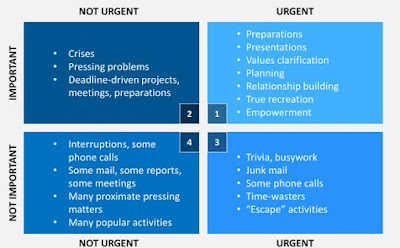Tips On Managing Time Effectively During Lockdown
It's 3.15 am, I wake up from my slumber. I see my husband engrossed in his cell phone, the light of the screen flashing on his face in the darkness of the room. I walked towards the window and saw the lights of the row house opposite my house switched on. I wondered what's happening at this time of night when people are supposed to be sound asleep.
It's late in the afternoon and we are still not hungry, as we've had a late breakfast.
It's 4 pm and I still haven't got done with cleaning, sweeping and swabbing.
These, and many such delays in daily activities, I am sure you are also observing in your routine. Is this procrastination? Not really. Procrastination is when we put off things which are to be done right now or at this very moment, to be done another day or later. But this delay or putting off is not an effect of only procrastinating our activities.
Moving out of the house, going to work, getting ready for a meeting, sending children to school, packing your tiffin, catching a local or bus were all a part of a set schedule that we followed religiously. Earlier it was only on our off days that we would lose the sense of time. But now, since we are all home-bound, we have lost our time anchors, almost all of them.
Very soon the lockdown will end and we will begin our usual activities. Hence, we need to get accustomed to our routines again.
Let's look at some simple tricks that will help our brain adapt re-return to work and adhering to timelines:
a) Create a home routine - Plan your days, like we have at work, a timeline of what activities to perform at what time, will be helpful to order our days. Plan ahead of time if required.
b) Prepare for a meeting - Dress professionally to join office meetings, zoom webinars, seminars, etc. Research shows that professionals perform better if they have dressed as per the occasion. This also has an impact on how you think.
c) Prioritize - Even if we are at home, prioritizing tasks that are of high value or which are to be done first should not be taken for granted. We must rank our activities, as it improves productivity and helps us achieve our weekly, monthly, and ultimately our yearly goals, by knowing what to focus on.
d) To-do list with deal with yourself - List the tasks you need to accomplish. Use a diary or a virtual planner to write pending tasks. Research states that tasks, when written are remembered by our brain significantly better.
e) Time management matrix - Divide your list of tasks into 4 quadrants. This is known as the urgent, important matrix. The task which is urgent and important is to be attended first. eg. Join a zoom team meeting. The task which is urgent, but not important also need to be completed. These can be done as quickly as you can. eg. Attending a doorbell or a telephone ring. The task which is not urgent, but important can be done a little later. But remember, the importance of the task requires us to do it now or later. eg. Exercise for fitness is important, but not urgent. Lastly, tasks that are neither urgent nor impossible can be kept for the end. They should occupy the least time of the day. eg. Non-productive tasks like checking social media accounts and posting photos. Although it's important to socialize, it must be restricted to not hamper our other chores.
 |
| Time Management Matrix |
f) Audit - Access the time you have spent on various activities and examine the changes you need to make to function better.
Remember, life is not always about counting your achievements, rather, it is about the quality of work you achieve and how these achievements align with your goals. Stay anchored in time schedules. Have fun, take breaks, relax on non-working days. But do not lose your sense of time during this lockdown period. Stay fruitful:)
Comments